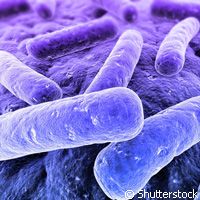Study reveals success behind ocean bacteria
The ocean is home to our planet's most successful bacteria new research from Sweden shows. Funded in part by the GENOME EVOLUTION ('Tracing the evolution of alpha-proteobacterial genomes') project that clinched a Marie Curie Intra-European Fellowships (EIF) grant worth EUR 166 500 under the EU's Sixth Framework Programme (FP6), the study sheds fresh light on why bacteria that form part of the SAR11 group are successful and also probes some generally accepted theories. Published in two articles in the journals Molecular Biology and Evolution and PLoS ONE, the research found a rare and unknown relative of mitochondria - the 'energisers' of cells. 'The huge amounts of deoxyribonucleic acid (DNA) information now being produced from the oceans gives us a glimpse of a world that could never be studied before,' says Professor Siv Andersson from the Department of Molecular Evolution at Uppsala University, the lead author of the papers. 'It's incredibly fascinating to look for answers to the fundamental questions of life in these data.' Researchers say SAR11-type bacteria represent between 30% and 40% of all bacterial cells in oceans. Their presence influences the global carbon cycles. According to the team, these bacteria are not so commonly found anywhere else. Because the open seas lack sufficient nutrients, the SAR11 bacteria have a very small cell volume in order to maximise the concentration of nutrients in the cells. Their genomes are also exceptionally small and compact. Past studies had found that SAR11 bacteria are related to another specialised group of bacteria that includes the typhus bacterium. While the latter bacteria also have small genomes, they are adapted to humans, animals and insects. Through sophisticated analyses of evolutionary relationships, the Uppsala researchers discovered that SAR11 bacteria evolved from ocean- and earth-dwelling bacteria with genomes that are at least 3 times and up to 10 times as large. Contrary to their close relatives, SAR11 bacteria do not have the genes that researchers believe are needed to help fix damage to DNA. This, say the researchers, could be the reason why they have been so successful. 'The loss of genes means that the bacteria can more readily exchange genes with each other, and beneficial genes can then spread rapidly in the oceans as an adaptation to changes in nutrient content, temperature, and UV radiation,' says Johan Viklund, a doctoral candidate at Uppsala's Department of Molecular Evolution. Evaluating the data generated by other DNA studies spotlighting the bacteria in the oceans, the Uppsala team also analysed the DNA sequences for proteins that participate in cell respiration - when sugar is broken down into carbon dioxide and water. The comparison of these with the corresponding sequences for proteins in the so-called mitochondria of humans, animals and insects helped the team identify a group of rare bacteria not previously known to the research world. 'These bacteria are very similar to mitochondria,' says Uppsala's Dr Thijs Ettema. 'Our findings thus indicate that the origin of mitochondria might be the oceans, but that the closest relatives are not related to the SAR11 group as was previously thought.'For more information, please visit:Uppsala University:http://www.uu.se/en/?languageId=1PLoS ONE:http://www.plosone.org/home.actionMolecular Biology and Evolution:http://mbe.oxfordjournals.org/
Countries
Sweden



